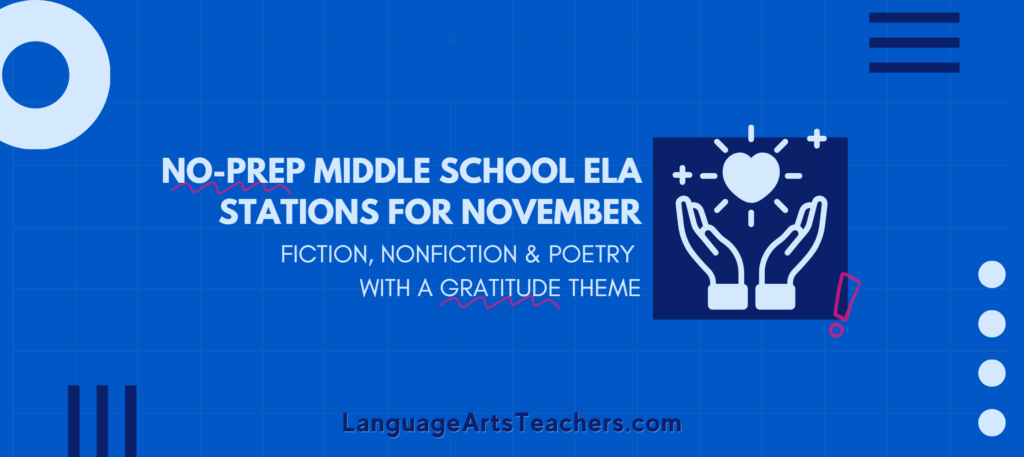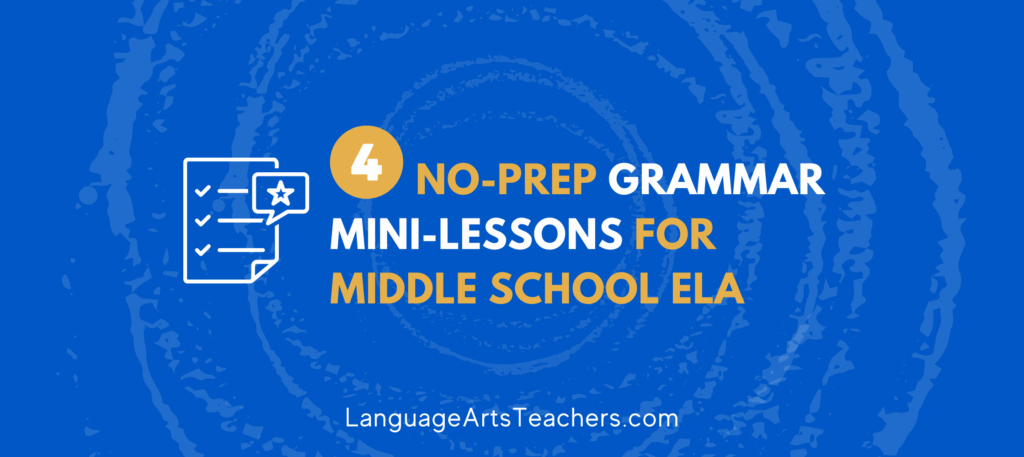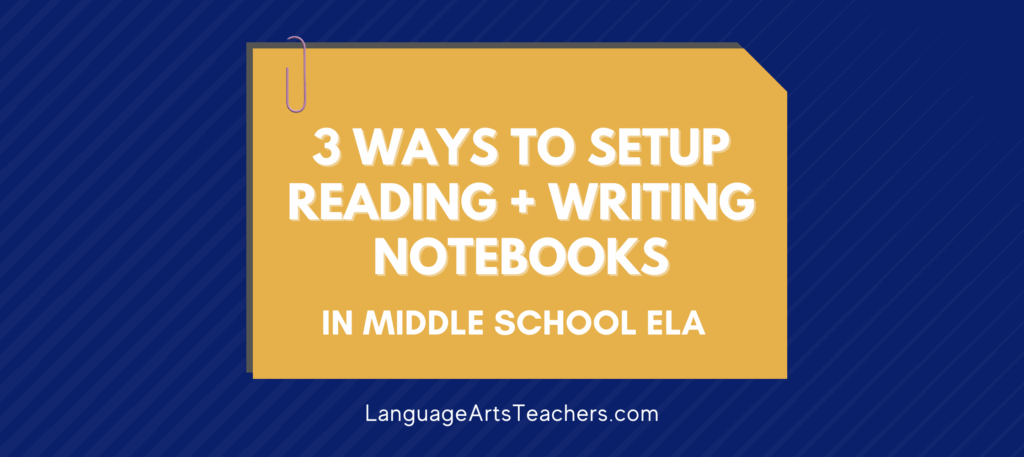“We don’t remember days. We remember moments.”
Cesar Pavese, Italian Poet (1908 – 1950)
It’s nearing the end of the school year, and we are all searching for an engaging and interactive activity for those last weeks to wrap up the year with intention. I created the Year-End Memory Book Project to give students an outlet for creative expression and to reflect on their progress and their best work. Today I’ll share all of the details!
8 GUIDELINES for CREATION
1) Your memory book will be compiled of _____ reflection topics you choose to write about based on this particular school year as it comes to a close. There are 20 topics to choose from.
2) Each topic is considered an “entry” in the memory book, so each one will have its own page. You may sketch or draw around it, use various colors of ink if desired, include images or other personal mementos like movie tickets or other artifacts to bring the entry to life. Or not. It’s yours to design and create!
3) Each entry will have its own unique title that you come up with yourself. (Writing Tip: It’s usually much easier to think of a great title after you’ve written the entry).
4) You may create this as a digital eBook (if you prefer to type or if you know your handwriting is difficult to read) or as a written book (it’s pretty cool to look at how your handwriting changes over time) – it could also be a combination of the two!
5) If you have a topic you’d like to write about that doesn’t fit in with any of the 20 topics provided already, you may do so.
6) Each entry (i.e. each memory) must serve a purpose. In other words, each entry must ultimately show what you learned from the experience you are writing about, or how you changed or grew, or a new life lesson you learned, or what new understanding or new perspective you gained.
7) You need to show me an entry each day so I can check that you have it done. You need a rough draft and a final draft for each entry. You can write each day’s rough draft entry at home on your own time and then spend class time working on your final one. Or, you could write the rough draft version in class, like one each day, and then at home you could finalize the entry that way.
7) This is your best work, your best writing. Check your spelling and punctuation. Ask for help or look up what you need to help you. Proofread.
8) The memory book is YOURS (create it, keep it safe, look at in 20 years, take pride in your work because you’re doing this for you, not for me).
Year-End Memory Book Project
Choose any ____ of the 20 topics below.
| Write about a quote or even a line from a song that has had a significant meaning to you this year. | Tell about a school tradition that you’re proud of. | Explain which teacher’s class you found yourself hanging out in more so than others, maybe before or after school or during lunch. | Describe an embarrassing, yet hilarious school memory from this year. |
| Tell about the school event that you looked forward to most this year (or that you are looking forward to). | A student’s locker can be so important! Describe the importance of your own locker decoration or organization. | Write about something you did a really good job of avoiding this year. | Explain a life lesson you learned this year from playing a sport or from participating in some other team activity. |
| Describe what it’s been like to be part of a school club this year: maybe theater, or music, or art, or some other school club. | Write about something you realized you’re actually good at! | Tell about a project or large assignment that surprised you (how what you were able to do or create surprised you). | Describe the most-watched or most talked-about TV show or YouTube video channel that seemed so important this year! |
| Which subject, in your opinion, has best prepared you for the next school year? | Tell about the role of a certain type of social media in your life this year. Pros and cons! | Write about what you wish you knew on the first day of school this year that would have been so helpful to know! | What are you most proud of about yourself from this year? |
| Parents, siblings, family… Choose one person and write about the role that person played in your school life this year. | Write about one thing you wish you’d done differently this school year, and what you can probably do about it for next school year. | Describe something pretty incredible you read or learned about this year that you can’t stop thinking about. | If you could sum up your entire school year in one word, what would that word be? Explain its meaning as it relates to this school year. |

Ideas for the Teacher
I’ve used this Memory Book in various ways, depending on my students, depending on how many days I’ve been able to provide for this, or how many days I needed to “fill”, so here are some options that you can consider for your own classroom:
- If you have 10 class days to “fill” then have students choose 8-10 topics so they can write one per day (rough copy & final copy + adding any images, sketches, etc.)
- Think about an appropriate length for your students to write (‘cuz they’ll ask how long each entry has to be!) For me, I always want my students to focus on the depth and the details of the entry, not the length. If your students need something more concrete, think about where they are developmentally. You might have some who will struggle to make each one even half a page. Others may do really well with more like a page or two. It just depends on your students and where they are in their knowledge, creativity, and comfort with writing.
- I NEVER grade all this. I do NOT take home each entry each day and stay up late reading them. That would be ridiculous and completely unsustainable. Instead, I “check” each entry each day.
Here’s what “checking” each entry each day looks like
As students work on entry #2, they leave entry #1 on their desks (or on their computers). I ask them to have already hi-lighted or marked or underlined the part of the entry that shows the most detail about the experience (sight, sound, taste, touch, smell, or strong feeling) AND the part of the entry that shows the lesson learned, or how they grew from the experience, or what they discovered from it.
This way, two important parts are already marked for me to check. I take maybe 10 seconds to scan over those marked sections, place a “tick mark” on my roster that I walk around with which means they met the requirements of the entry, and I move on to the next student as they’re all working.
I’m not checking for punctuation or spelling—I’ll point out something obvious if I see it, but I’m not stopping to go into a ton of detail. Instead, I encourage students to ask each other for help, to look up what they need, etc. I’ll do quick mini-lessons on major issues if they come up, but other than that, students are pretty much writing the whole time.
So what about an actual grade?
If I decide that I want students to write 10 entries (choose any 10 of the 20), then each “tick mark” represents 10% of the assignment. So all 10 would be a 100. I’m super-easy on grading this! If I have 15 days of school left, or if grades have to be submitted before the Memory Book would be done, then I submit what I can and I literally do not worry about the rest.
Final Thoughts
I really try to instill in students that this is THEIR Memory Book to save, keep, pull out in 20 years to show their own kids, etc. Many times, kids really do buy into this. I’ve had kids show up with scrapbooks and all the scrapbooking “gear” and get pretty serious on those last few days of school, even though grades are done, just to work on this.
I’ve had other kids who barely put in any effort, and yet are awed by the work they see coming from others in the class on this project. Likewise, I’ve had extremely artistic kids who end up writing fairly little yet drawing and sketching their books instead.
Why not? They’re busy, they’re doing something worthwhile that holds intrinsic value to them, and I won’t complain about that during the last week or so of school! I’ve even had students ask if they could turn their Memory Book into a series of little video documentaries. Their entries become “scripts” and they practice reading, memorizing, and recording them. I’ve had students turn the entries into poems before, and I even had one student write each entry in the form of a one-act play. The sky’s the limit! I’ve always chosen to let them be creative with it and to make it into what they want it to be.
Stop feeling like you have to choose between prepping for class and enjoying family time by clicking the button below to grab several weeks of free bell-to-bell lesson plans for 6th, 7th, and 8th grade.




